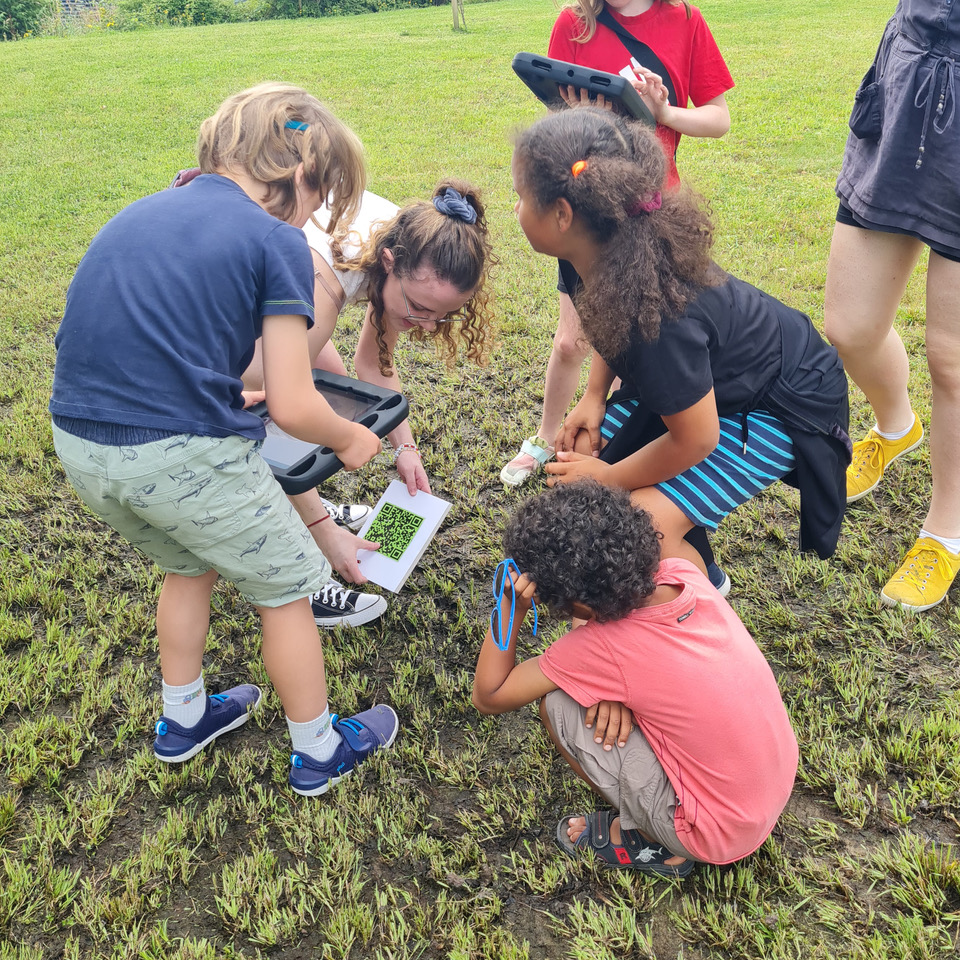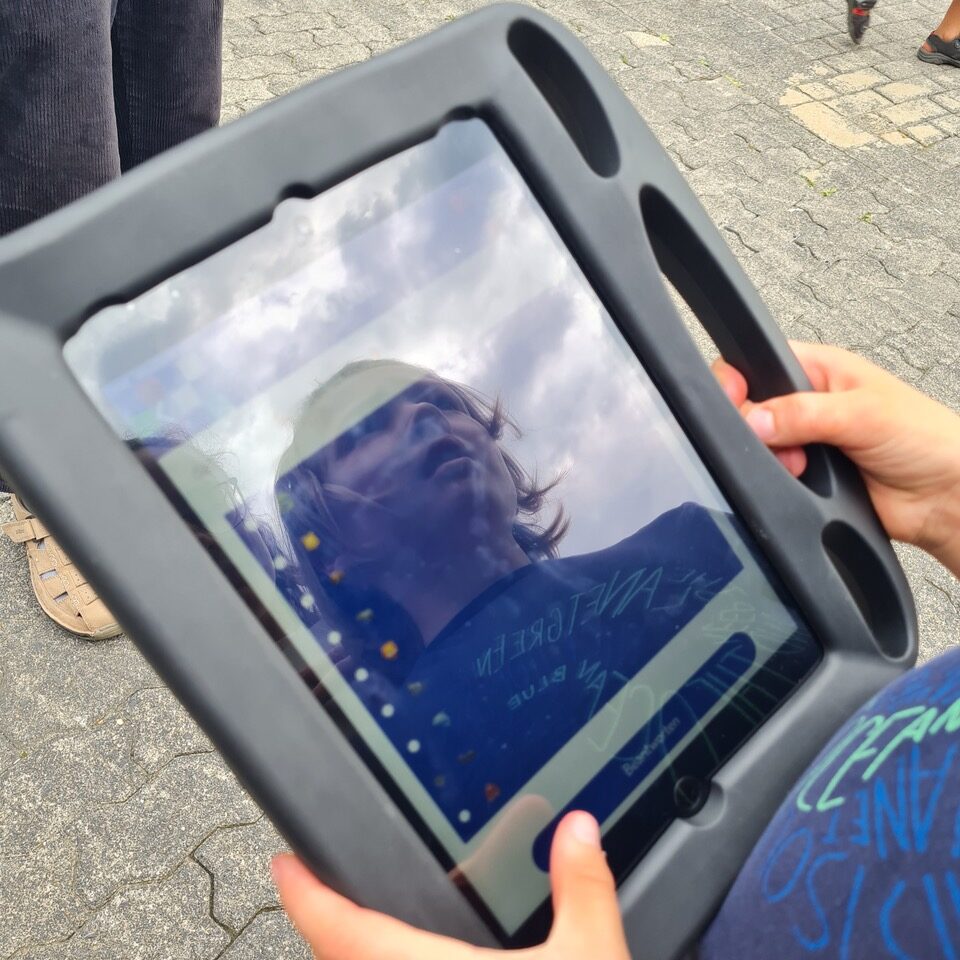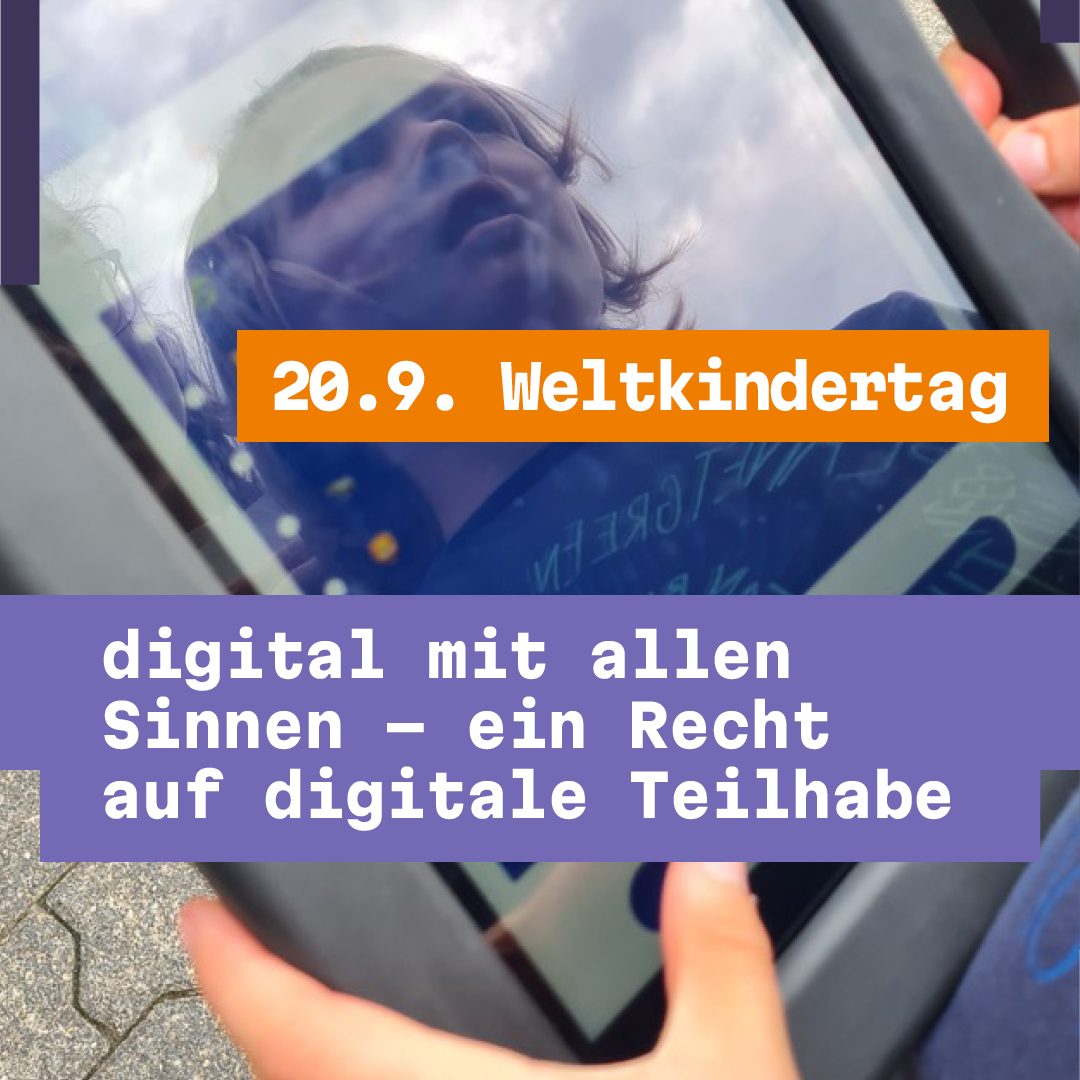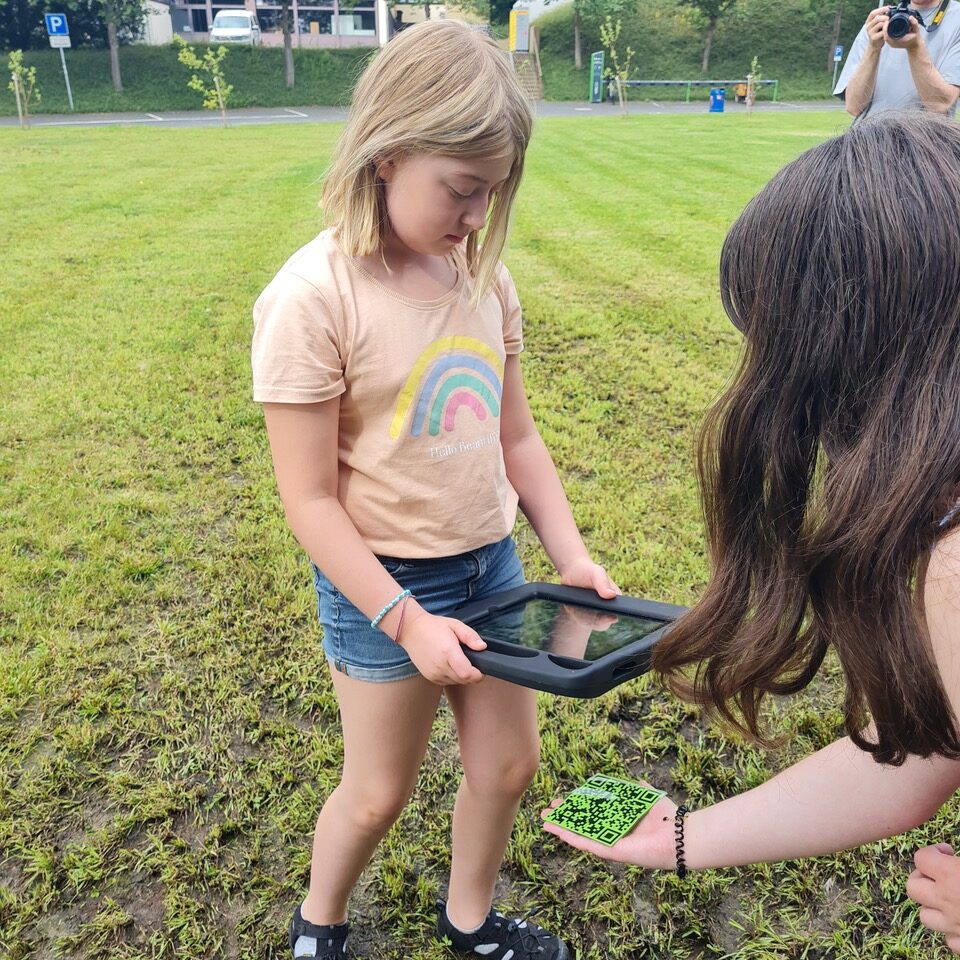News

“Machine–Body–Space: The Entanglement of Human and Non-Human Sensing”
Thursday, 07. November 2024 – Friday, 08. November 2024
This conference aims to investigate the complex co-constitution of human and machinic sensing, examining how sensing, sensoring, and sense-making are intertwined in sensory practices within everyday environments.
The conference is hosted by Lorenza Mondada, Clemens Eisenmann and Philippe Sormani from project P01 and Stephan Habscheid and Tim Hector from project B06 in the Collaborative Research Center 1187 “Media of Cooperation”
Together with our guests, we aim to discuss the evolving relationship between human and machine-based sensing and the effects of this relationship on everyday life. With digital and networked technologies becoming an integral part of our routines, sensor technologies now play a key role in personal and domestic spaces, from health management and home automation to environmental control.
These “sensing machines”, e.g. advanced voice assistants that can capture visual and tactile signals demonstrate, incorporate sensors that detect a range of physical attributes such as brightness, motion, temperature, and humidity. This data enables machines to interact with their environments in sophisticated ways—observing human and animal movements, noting environmental changes, and assisting in daily activities. These tools can be empowering, especially in contexts of disability and assistance, but they also introduce new challenges related to privacy, equality, and the nature of human-machine interaction.
Contributions from empirical research will demonstrate for instance how users mobilize the human sensorium as well as old and new sensor technologies, thereby making their sensory experiences comprehensible for each other – from moment to moment, in their temporal sequence and in diverse contexts, including the enhancement of sustainability, convenience, assistance, entertainment or security.
In our discussions, we will tackle perception, embodiment, and interaction within shared spaces, emphasizing how both human and machine senses contribute to shared experiences. By focusing on sensory processes as practices, the event invites a rethinking of how we understand bodies, spaces, and machines as intertwined in new, hybrid modes of sensing and perceiving.
The event will thus foster a dialogue on how sensory technologies shape, challenge, and redefine our understanding of perception and sensing, both in practical settings and in theoretical contexts. We’re welcoming an international crowd of guests: Christopher Lloyd Salter (Zürich) and Bertolt Meyer (Chemnitz) as keynote speakers and roundtable inputs from Katharina Graf (Frankfurt), Wolfgang Kesselheim (Greifswald), Jakub Mlynář (HES-SO Valais-Wallis), Hannah Pelikan (Linköping), and others.
Venue
University of Siegen
Room AH-A-217/18 (2nd floor)
Herrengarten 3, D-57072 Siegen, Germany
The project P01 “Media of Praxeology I: Multisensory Mediality and Cooperative Practice” investigates the cooperative accomplishment, accountability, and socio-technical mediatization of multisensorial practices. It extends digital praxeology by showing in detail, how embodied and intercorporeal practices of cooperation are fundamental for the study of sensoriality and mediality. Lorenza Mondada is Professor of general and French Linguistics at the University of Basel and principal investigator of P01. Clemens Eisenmann and Philippe Sormani are postdoctoral researchers in P01
The project B06 “Un-/desired Observation in Interaction: Smart Environments, Language, Body, and Senses in Private Households” investigates the domestication of data-intensive sensory media in interaction by exploring how ‘intelligent’ living environments digitally capture households in terms of language, motor skills and sensory perception. Stephan Habscheid is Professor of German Studies / Applied Linguistics at the University of Siegen and principal investigator of B06. Tim Hector is postdoctoral researcher at B06

Scaling Sensing – Sensing Publics: Landscapes and Borders, Homes and Bodies
We are excited to invite you to the CRC Annual Conference 2024, taking place from November 13-15, 2024, at Uni Siegen, Obergraben 25, US-S 001/002. Organized by the Collaborative Research Center (SFB 1187) – Media of Cooperation. This year’s conference focuses on Scaling Sensing – Sensing Publics: Landscapes, Borders, Homes, and Bodies and is generously funded by the Deutsche Forschungsgemeinschaft (DFG).
About the Conference
This event is free and open to all, with a special invitation to early career researchers interested in engaging with leading experts and innovative research on the role of sensing practices and technologies in shaping public and private life.
The conference will offer a platform for interdisciplinary perspectives on how sensing practices influence environments, borders, domestic spaces, and the human body. Sensor technologies have rapidly changed the way we understand and interact with the world, influencing fields as diverse as the natural environment, urban planning, healthcare, and privacy.
Key themes and panel sessions:
- Sensing Landscapes: how sensing practices (human, digital, and non-human) shape the use and understanding of landscapes across diverse ecological and socio-political contexts.How sensing practices (human, digital, and non-human) shape the use and understanding of landscapes across diverse ecological and socio-cultural contexts.
- Sensing Borders: The implications of sensor-based technologies on migration, surveillance, and border control, highlighting their role in security and sociopolitical dynamics.
- Sensing Homes: The growing integration of smart home technologies, focusing on privacy, convenience, and control within domestic environments.
- Sensing Bodies: The intersection of wearable technologies and embodied social interactions, with implications for healthcare, biometric tracking, and social connectivity.
Next to renowned international keynote speakers, each panel will feature experts and researchers from various disciplines who will present case studies and theoretical reflections on interactionsbetween sensing, sensor technologies, and the public sphere.
Highlighted Speakers Include:
- David Howes (Concordia University, Montréal) on Calibrating the Techniques and Technologies of Perception-Action.
- Jürgen Streeck (University of Texas, Austin) on Deeply Sensed Togetherness
- Louise Amoore (Durham University) on The Deep Border.
- Saadia Mirza (University of Chicago/ Sciences Po, Paris) on Sensing and Classification of Landscapes.
We will also enjoy a special evening of cultural enrichment on Thursday, November 14, with a performance by the Göksel Yilmaz Ensemble. Their music beautifully blends Turkish, Arabic, and Kurdish traditions with jazz and classical influences, promising a memorable night of music and cross-cultural celebration.
Event Details:
- Dates: November 13-15, 2024
- Location: Uni Siegen, Obergraben 25, US-S 001/002
- Time: 9:00 AM – 6:00 PM daily
- Cost: Free of charge
How to Register:
Registration is open until October 20, 2024. To secure your spot, please register here.
Why Attend?
This conference is a unique opportunity for professionals, researchers, and students in fields related to media studies, cultural anthropology, socioinformatics? sensor technology, ethics, urban planning, healthcare, and more. We especially encourage early career researchers to join and benefit from networking and discussions with experts in the field. Whether you’re interested in the impact of technology on privacy, the future of smart cities, or the ethical dilemmas surrounding sensor-based surveillance, there’s something for everyone.
We look forward to welcoming you to an exciting and intellectually stimulating three days of discussions, presentations, and networking.
For more information about the program and detailed schedule, visit our conference website.
Follow us on social media for live updates throughout the event →
#CRC2024 #ScalingSensing #SensingPublics #MediaOfCooperation
Thank you, and we hope to see you there!

“The Connectivity of Things: Network Cultures since 1832”
Sebastian Gießmann (University of Siegen)
Translated by Steven Lindberg
Die Verbundenheit der Dinge was first published by Kulturverlag Kadmos Berlin in 2014 (2nd ed. 2016). Sebastian Gießmann was awarded the renowned translation prize for humanities and social science scholars by Geisteswissenschaften International in 2020. The result of Sebastian Gießmann’s completely revised translation has now been published by MIT Press under the title The Connectivity of Things: Network Cultures since 1832.
A media history of the material and infrastructural features of networking practices, a German classic translated for the first time into English.
Nets hold, connect, and catch. They ensnare, bind, and entangle. Our social networks owe their name to a conceivably strange and ambivalent object. But how did the net get into the network? And how can it reasonably represent the connectedness of people, things, institutions, signs, infrastructures, and even nature? The Connectivity of Things by Sebastian Giessmann, the first media history that addresses the overwhelming diversity of networks, attempts to answer all these questions and more.
Reconstructing the decisive moments in which networking turned into a veritable cultural technique, Giessmann takes readers below the street to the Parisian sewers and to the Suez Canal, into the telephone exchanges of Northeast America, and on to the London Underground. His brilliant history explains why social networks were discovered late, how the rapid rise of mathematical network theory was able to take place, how improbable the invention of the internet was, and even what diagrams and conspiracy theories have to do with it all. A primer on networking as a cultural technique, this translated German classic explains everything one ever could wish to know about networks.
Praise
“From fishing nets to the London Tube map, telephones to network protocols, this fascinating book mines diverse historical episodes to highlight the changing materiality, culture, and practices of networks.”
JoAnne Yates, Sloan Distinguished Professor of Management, Emerita, MIT Sloan School of Management
“Behold the much-anticipated history and theory of networks. Giessmann has penned a deeply philosophical and beautifully written media history of how the modern world became so intricately, and perilously, webbed. A triumph!”
Benjamin Peters, Hazel Rogers Associate Professor of Media Studies, University of Tulsa; coeditor of Your Computer is on Fire; author of How Not to Network a Nation
“The Connectivity of Things is as expansive and capacious as a network, drawing together technologies and social forms, spatiality and temporality, language and images—an essential text for network historians.”
Nicole Starosielski, Professor, University of California, Berkeley; author of The Undersea Network and Media Hot and Cold
Sebastian Giessmann is Senior Lecturer at the Department for Media Studies at the University of Siegen. He is Principal Investigator of the DFG-funded research project“ „A01 – Digital Network Technologies between Specialization and Generalization“ at the Collaborative Research Centre 1187 –“Media of Cooperation”.
MIT Press is one of the largest and most distinguished university presses in the world and a leading publisher of books and journals at the intersection of science, technology, art, social science, and design. MIT Press books and journals are known for their intellectual daring, scholarly standards, interdisciplinary focus, and distinctive design.
mit:forschen! GEMEINSAM WISSEN SCHAFFEN: Der Forschungspreis geht an das Forscherteam A05 des SFB 1187: Medien der Kooperation.
Tanja Aal und Dennis Kirschsieper (beide Universität Siegen)
Der Beitrag „CareConnection – A Digital Caring Community Platform to Overcome Barriers of Asking for, Accepting and Giving Help” der Sozio-Informatiker/innen gewinnt stellvertretend für das Autor*innen-Team der Publikation den zweiten Platz des ‘Wissen-der-Vielen – Forschungspreis für Citizen Science 2024.
Über Preis und Beitrag
Die Citizen-Science-Plattform „mit:forschen! Gemeinsam Wissen schaffen“ dient der Präsentation deutschlandweiter Forschungsprojekte, die mittels partizipativer Ansätze Bürger*innen einbeziehen. Persönliche Erfahrungen und individuelles Wissen der Gemeindemitglieder werden in Entwicklungsprozesse integriert und erfahrbar gemacht. Hierdurch wird der Diskurs über individuelle Lebenswelten in verschiedensten thematischen Kontexten, Herausforderungen und gemeinsam erarbeitete Lösungsszenarien angeregt und Vernetzung zwischen Wissenschaft und Gesellschaft gefördert.
Der 2. Platz des hieran angebundenen ‘Wissen-der-Vielen – Forschungspreis für Citizen Science 2024 ging an das Forschungsteam des Teilprojektes A05 „Kooperative Herstellung von Nutzerautonomie im Kontext der alternden Gesellschaft“ des Sonderforschungsbereichs 1187: Medien der Kooperation der Universität Siegen. Die Preisverleihung fand am 09. Oktober in Hamburg statt. Wissenschaft im Dialog und das Museum für Naturkunde Berlin würdigten die Preisträger mit einem Preisgeld von 10.000 Euro.
Mit ihrer Publikation ‚CareConnection – A Digital Caring Community Platform to Overcome Barriers of Asking for, Accepting and Giving Help’ beschreiben die Forscher*innen Tanja Aal und Dennis Kirschsieper die Forschung und Entwicklung einer Online-Plattform, die den Aufbau einer lokalen (Online-)Sorgegemeinschaft unterstützt.
Jury-Statement: “Auf einer allgemeineren Ebene wird durch die Forschungsarbeit sehr deutlich belegt, dass Citizen Science einen wichtigen Beitrag zur menschenzentrierten Technikentwicklung leisten kann.“
Die „CareConnection”-Plattform wurde mit einem Community-Design-Ansatz und nach Prinzipien der partizipativen Forschung (Reallabor, partizipative Aktionsforschung) entwickelt. Im Zentrum stand dabei, psychologische und soziale Barrieren des ‚um Hilfe bitten, Hilfe akzeptieren sowie Hilfe geben‘ zu identifizieren und zu überwinden. Die Publikation entstand zusammen mit weiteren Co-Autor*innen, bestehend aus Bürgerforscher*innen und Studierenden, unter der Leitung von Prof. Dr. Claudia Müller (Lehrstuhl Wirtschaftsinformatik, insb. IT für die alternde Gesellschaft) im Kontext des von ihr geleiteten Forschungsprojekt am Sonderforschungsbereich. Veröffentlicht wurde die Publikation im Tagungsband von Mensch und Computer 2023.
Empirische Basis der Entwicklung dieser Plattform und medialen Infrastruktur ist eine qualitative Interviewstudie, die in Kooperation mit der Fachhochschule Bern sowie in co-kreativer Zusammenarbeit mit älteren Menschen einer lokalen Gemeinde im ländlichen Bereich nahe Zürich durchgeführt wurde. Die Ergebnisse flossen in einen ersten Design-Prototyp einer Community-Plattform ein, die das Suchen und Anbieten von Hilfe barrierearm ermöglichen soll.
Die Plattformentwicklung wurde inzwischen auf den deutschen Kontext übertragen und befindet sich in der dritten Entwicklungsstufe des iterativen Bürger-zentrierten Design-Prozesses. Weitere 8 Interviews und 6 Design-Workshops wurden gemeinsam mit Studierenden und Bürger*innen geführt und befinden sich nunmehr in der finalen Evaluation.
Ziel des dreijährigen Projekts war ‚Hilfe benötigen‘ zu entstigmatisieren. Es sollte sich gemeinsam, ganz nebenbei, und in einem geschützten, digitalen Raum begegnet werden, um Hilfe vertrauensvoll erfahren und selbst schenken zu können. Das Projekt fördert eine sozio-technische Gemeinschaft, in der die Autonomie und Selbstbestimmtheit verschiedenster Nutzergruppen und das individuelle Gesundheitsmanagement langfristig zu stärken.
Über die Forscher/innen
Die Wiederkehr des Konnektionismus
von Sebastian Gießmann (Universität Siegen)
Wie die Mediengeschichte Künstlicher Intelligenz geschrieben werden kann.
→ Artikel erschienen in der FAZ am 02.10.2024
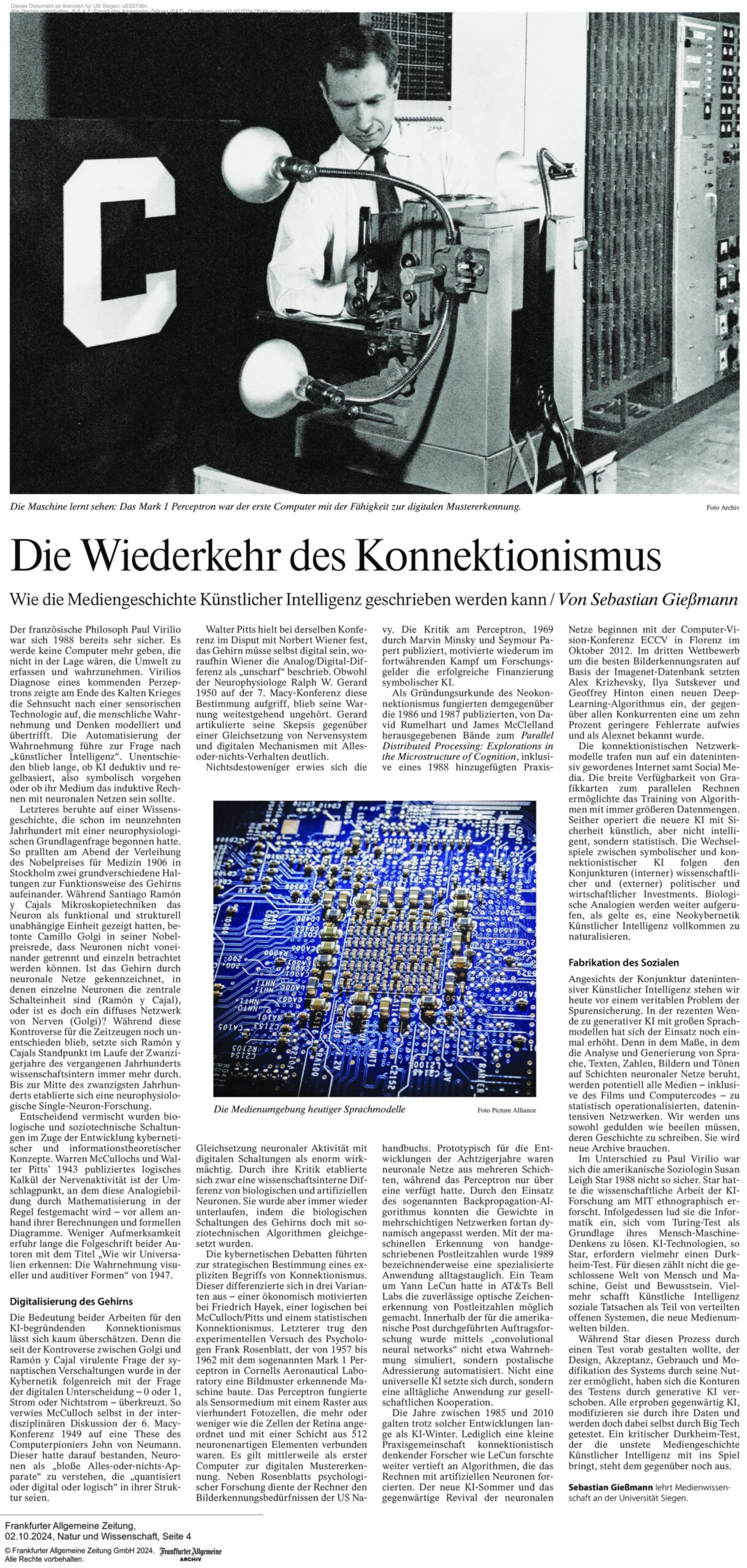
Über den Forscher
Sebastian Gießmann ist Akademischer Oberrat am Medienwissenschaftlichen Seminar der Universität Siegen und leitet das Teilprojekt A01: Geschichte digital-vernetzter Medien zwischen Spezialisierung und Universalisierung am Sonderforschungsbereich 1187 Medien der Kooperation.
Ein Klick, große Folgen: Wer entscheidet, was ein Like bedeutet?
Sebastian Gießmann (Universität Siegen) und Johannes Paßmann (Ruhr-Universität Bochum) heute Abend zu Gast in der DLF-Sendung “Systemfragen”
Der Beitrag fragt nach den Folgen von Likes auf Social Media.
Zur Folge
Zurücktreten wegen eines Likes auf Social Media: Diese Diskussion wurde etwa im Fall der Präsidentin der TU Berlin, Geraldine Rauch, geführt. Aber meint ein Daumen nach oben immer Zustimmung? Und wer entscheidet, was ein Like oder Emoji bedeutet?
Zu den Forschenden
“How Fact-Checkers are Becoming Machine Learners: A Case of Meta’s Third Party Programme”
Yarden Skop (University of Siegen) and Anna Schjøtt Hansen (University of Amsterdam, The Netherlands)
The paper of our CRC 1187 member Yarden Skop is honored as best student paper at the 2024 conference of the Association of Internet Researchers. The article will be published in the proceedings of the conference and will be available online on October 30th, 2024.

Hoa Mai Trần was invited as an expert on the topic of digital media in early education to a radio interview with WDR 5. The radio report “Digital media in nurseries: yes or no?” (author Corina Wegler) is about the municipal family centre ‘Krümelkiste’ in Arnsberg-Hüsten in North Rhine-Westphalia, which specialises in the use of digital media. The article highlights opportunities and limitations for early digital education and points to the current relevance of dealing with the realities of children and families in an increasingly digitalised world.
Hoa Mai Trần is a researcher in the CRC project (B05) “(Early) Childhood and Smartphone. Family Interaction Order, Learning Processes and Cooperation” and researches children’s digital gaming practices.
The radio feature is available until 28 May 2025 in the WDR Mediathek. It is only available in German.
1 / 11



